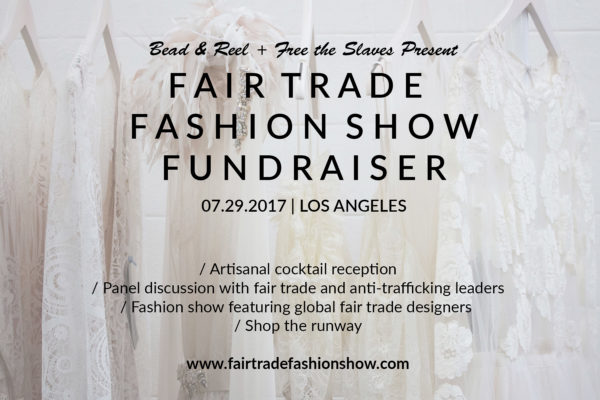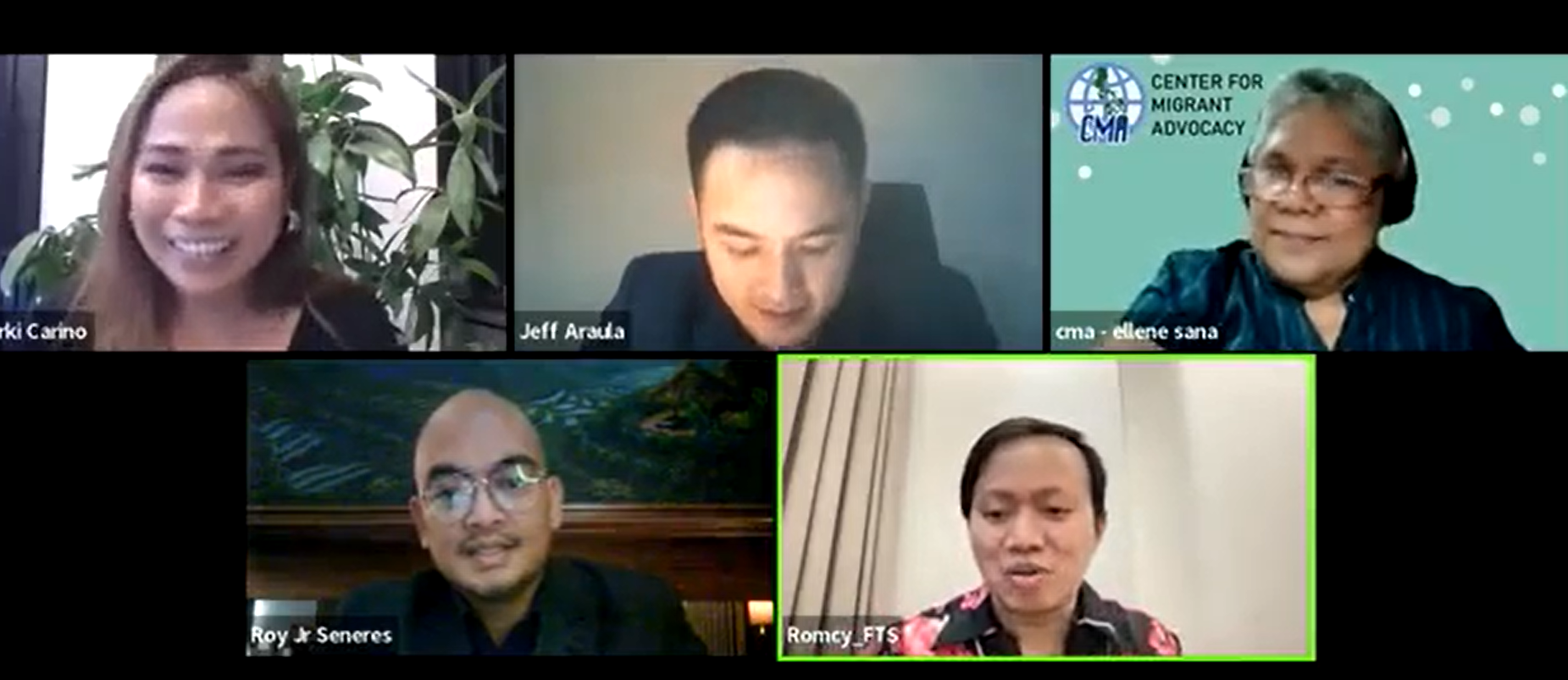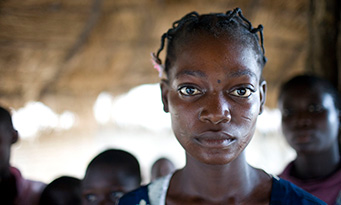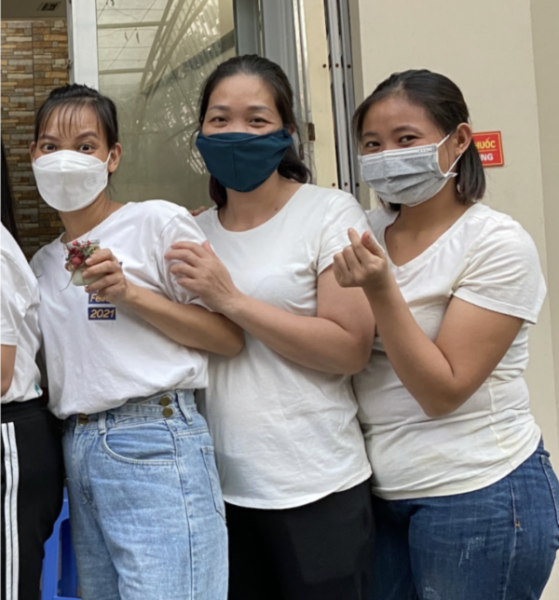An educated consumer has the power to end slavery. That’s why Free the Slaves and Bead & Reel are hosting a fair trade fashion show July 29 to raise money and awareness of modern slavery. This show is the third annual of its kind.
With slavery being a $150 billion industry and with 21 million enslaved globally, the Fair Trade Fashion Show helps highlight brands that are producing clothing ethically, ensuring clean supply chains. The fashion industry all too often provides an opportunity for traffickers to exploit the vulnerable. This show celebrates both the missions of fair trade brands, as well as their beautiful products. If consumers make the decision to demand supply chain transparency and push for fair trade production, we will be one step closer to eradicating slavery.
Free the Slaves is committed to ending slavery and changing the conditions that allow slavery to persist. One important way to combat slavery is for businesses to clean up their supply chains and for consumers to commit to fair trade fashion. When you buy fair trade it means that the artisans who are creating products are able to negotiate pricing for themselves. This negotiated pricing, though it may seem simple, gives artisans the ability to build a future. Fair trade benefits those who are economically disadvantaged, and who deserve to be treated with fairness and respect within a business relationship. By selling their products for a fair price, artisans can empower themselves and their communities.
FTS is proud to co-host an event that showcases the beauty and quality of ethically made products. Our goal is to end exploitation within the fashion industry and educate people on fair trade fashion. Human rights are not the only concerns within the fashion industry. This is why FTS and Bead & Reel have also ensured that the participant brands are entirely vegan and sustainable.
Free the Slaves is also committed to providing slavery survivors with vocational training. This vocational training allows survivors of trafficking to rebuild their lives. These programs take place both in the Democratic Republic of the Congo and in India. A shelter in India, appropriately named Punarnawa Ashram, meaning “beginning of new life,” provides a safe space for survivors of sex slavery. Along with receiving medical, legal, psychological, and educational assistance, the women are provided vocational training. Women recovering are taught useful sewing skills.
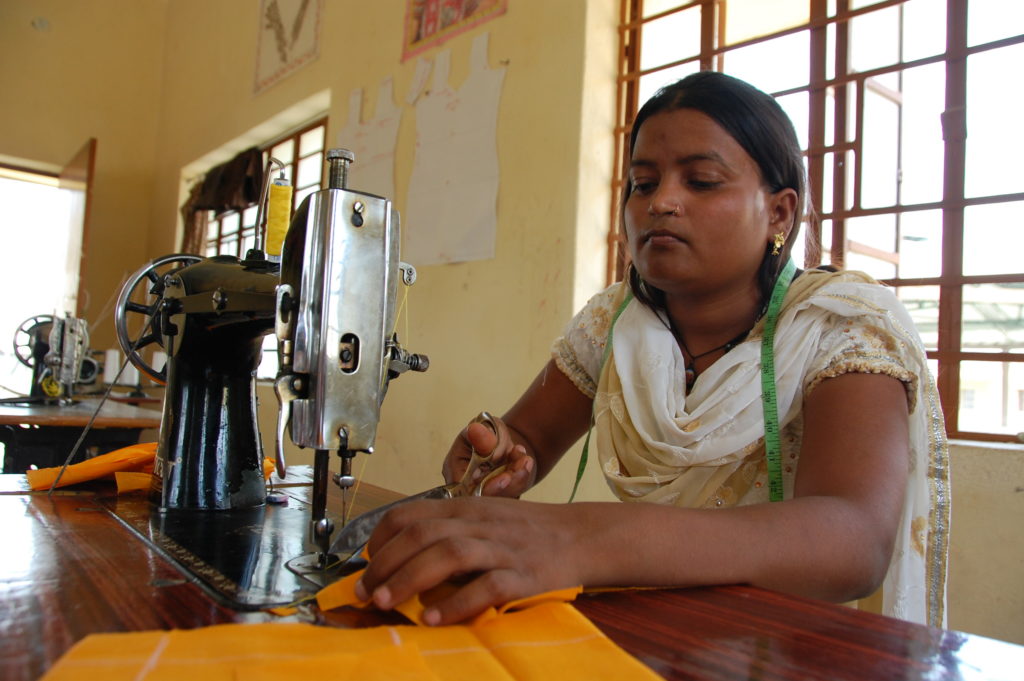
Trafficking survivors learn new skills to survive in freedom at the FTS-supported Punarnawa Ashram in India. | Photo: FTS/FitzPatrick
By supplying vocational training FTS is targeting underlying factors of slavery. Alleviating poverty makes people less vulnerable to traffickers and less likely to pursue risky means of work. It also helps empower survivors who can become economically independent, and perhaps for the first time profit from their hard work. These vocational training programs are key to a safe and sustainable future for survivors.
In the Congo, Ombeni, who was once abducted by a soldier and held in sex slavery, began training in sewing after her liberation. She now owns a sewing boutique and is able to provide for her two children. Free the Slaves works to provide vocational training programs to provide opportunities to survivors like Ombeni, but they are often costly and rely on outside support. For the sewing vocational program alone, training kits cost about $100 each without including the sewing machines for the survivor’s reintegration, which cost about $200 each. Program costs also include rentals for a vocational training center, sewing training kits, materials, and car rental for transporting materials. The training programs help give survivors the tools, training, and support to rescue their children, reunite their families, and protect entire villages from traffickers. Both India and the Congo have a chance to benefit from these programs and they have helped change the lives of many affected families.
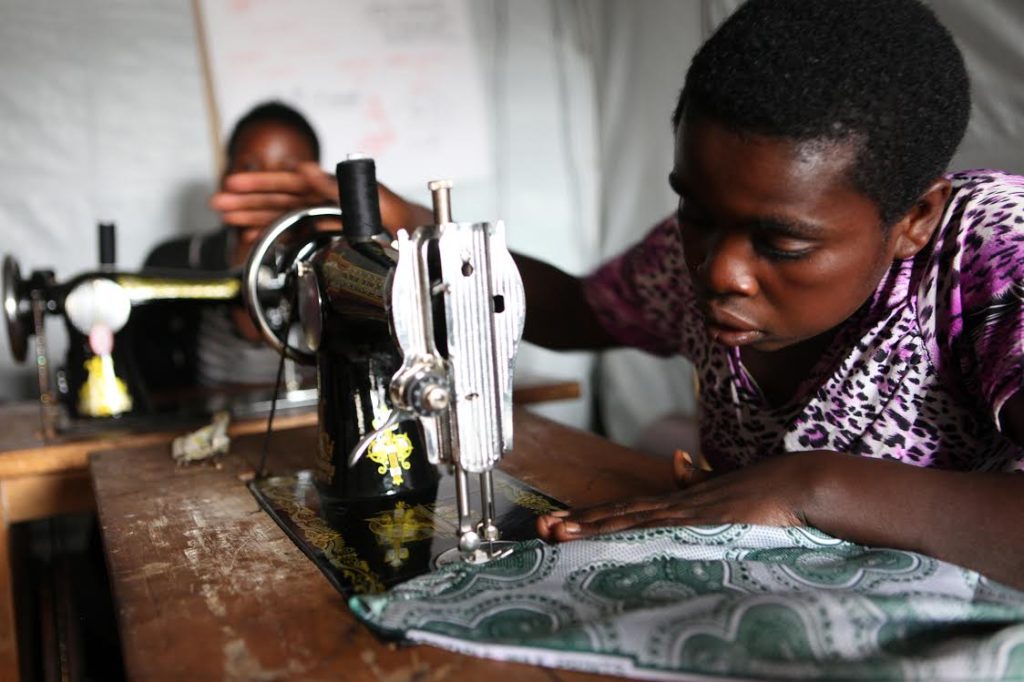
Ombeni learns sewing at FTS-supported program in the Congo. | Photo: FTS/Timpy
Whether we know it or not, we are all connected to modern slavery. Everything that we consume has been handled before us. Unfortunately, many products in our world have been created using slave labor. Luckily, there are ways that we can help. Buying fair trade is an effective way of combatting modern slavery and cutting it off at the source. Fair trade fashion is a simple yet impactful way to do our part. Supporting fair trade can be fun and fashionable. We can fight trafficking little by little, using fashion as our platform!
The Fair Trade Fashion Show will be from 7:00 p.m. to 9:30 p.m. in downtown Los Angeles. General admission tickets are $75.00. VIP tickets are $150.00. All ticket sales benefit Free the Slaves. Even if you can’t attend, consider supporting FTS’ Fashion for Freedom Campaign which aims to raise $20,000 this summer!

